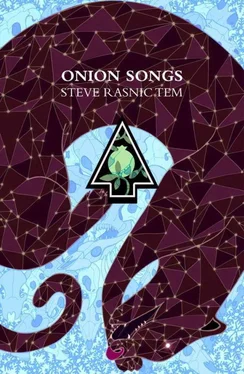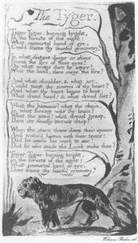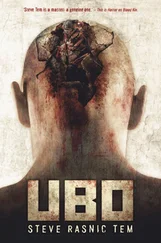I put that first bulb down on the table and stared at it. Careful not to break it, but definitely wanting it out of my hands. With the metal base turned away from me, and no brand name or insignia visible, it did so look like an egg.
I went back to the carton of eight. I should have noticed before—the entire carton was heavy, remarkably so. But for the time being I left the rest of the bulbs where they were. I put the carton back down and pulled up a chair, examining the packaging. “Bulbs” was the only word on the carton, in big black letters. No brand, no manufacturer’s name or address, no instructions, no copyright, no trademark, no guarantee, not even a price. You couldn’t get much more generic than that.
Iris Murdoch said truth was like brown. “Truth is so generic,” she said. But did she mean that was a good thing or a bad thing? That’s the trouble with quotes. It sounds like she thought truth was really no big deal. But what else is there?
And I didn’t want to use those bulbs, but again, what else was there? Sometimes, to quote Eleanor Roosevelt, “You must do the thing you think you cannot do.” I had to use them, unless I wanted to walk around in darkness, which I’d had enough of in my lifetime already. I didn’t want to make a return trip to the store. I just don’t like the lighting. All those fluorescents. They make you rush your shopping. You’ll grab anything, buy anything, just to get out of there. They illuminate people’s irrationality more than anything else.
So I screwed one of these odd bulbs into an out-of-the-way, little-used lamp we keep in the front hall. Mostly its purpose is to illuminate the coat rack if one of us needs to go out at night. But neither of us goes out much. So what if one of us looked like we’d gotten dressed in the dark? Who would care?
I wasn’t too pleased about having the bulb in my hand for the time necessary to secure it in the socket. Besides the uncanny weight of it, the glass conveyed a dead-cold feel against my palm, and there was a hard-to-describe sensation just this side of dampness as I gripped and turned it, as if the bulb were sweating on its inside surface. And the weight inside seemed to more than shift, to respond to the movement being forced upon it with some sort of intelligence. I might have told my wife, “This is no dim bulb!” if I were but moderately clever.
I noticed right away that it had an almost lubricated feel as it glided into the turns of the socket. Usually you feel a kind of scraping resistance when you screw in a bulb—cheap metal against cheap metal. Usually it snags a bit—sometimes you have to back it out and start all over. But here I felt nothing at all. I come back to Eleanor Roosevelt for my wisdom: “When life is too easy for us, we must beware.” I was practically terrified.
But once I had the bulb firmly planted and flipped the switch I was amazed . What a light did bloom! It was almost pure white, whiter than a Halogen, but cooler. You could look directly at it without too much discomfort. And although I immediately saw the shadow inside, a shape that moved, I noticed that somewhat mysterious presence diminished the illumination not one bit. In fact, it appeared to manipulate the rays, and focus them, so that they spread at a speed you could actually perceive. You could see that light creep across the details of the room, at varying rates no doubt due to the different densities of detail encountered. So, gradually, shadows were eaten, and things were revealed, so that old scars in the woodwork suddenly became remembered, the residue of stains recalled, unevenness of tile, and dirt in areas I’d thought completely clean.
Even these flaws, once seen in such startling detail, became random incidents of beauty, and the truly beautiful things—a piece of tapestry, a strip of wallpaper, a crystalline vase, a dead cousin’s photograph—became almost overwhelming to view. I stumbled out of the front hall, tears in my eyes. I can’t say I was at all embarrassed by this. For “There’s a sacredness in tears,” to quote Washington Irving.
I know now I should have taken my time with the bulbs. My wife and I have never been ones to rush into things. We’re always so careful! But I couldn’t seem to stop myself. I went around to the lights in the living room, the dining room, my study, and our bedroom, switching out those old dusty bulbs with the rather odd, somewhat weighted bulbs from that new generic carton.
As I screwed in each bulb, and turned it on, and left it on, it really was as if a fire had been lit. “Man is the only creature that dares to light a fire and live with it,” said one Henry Vandyke. The light flowed from each bulb, transforming our home, each separate stream seeking the companionship of the others, and morphing everything they touched into something beautiful and true. As these bulbs performed their magic I chased the light around our home, and I found an even braver brilliance where the edges of each separate stream met. And yes, I found myself dancing and singing to observe this, very much the idiot. “Every man plays the fool once in his life,” according to Mr. Congreve, and certainly this was my time, my time to shine, as it were. I felt as brilliant as those creatures, those embryos, inside the bulbs.
Because that’s what they were, weren’t they? I wouldn’t know what else to call them, these little creatures with their oversized heads and dangly arms, playing with this startling light as if it were their first and only plaything. I just so wanted to see their darling little faces!
So I kept easing closer to each flaming bulb, staring as long as I dared, even longer, examining their precious silhouettes, willing myself to see their delicate faces even through frosted glass. It actually seemed possible.
“John, what on earth are you doing?”
I stared at my wife. I couldn’t take my eyes off her. “No,” I said. “That’s not quite all of it. The full quotation is ‘What on earth are you doing for heaven’s sake?’”
What was I seeing? She looked unhappy, but she always looked unhappy. But now I was seeing it in such refined detail: the disappointments, the displeasures, the wear and tear, the rub, the whispers, and the dying. And around her like a halo, like a cocoon: this house, much loved, and all that we’d put in it, and taken out, and so much of it accidental, without our choosing, just following habit, bad, lazy habit, just not thinking.
“You and your damn quotations! Couldn’t we just have a normal conversation now and then? Couldn’t you just tell me how you feel for once without dragging it out of the lips of someone famous, or dead? So tell me, I’m so unoriginal , who was that said ‘what on earth,’ and ‘what are you doing,’ and ‘for heaven’s sake,’ and all that, for heaven’s sake!”
“I don’t know,” I replied into the beautiful face of my disappointed, dying wife. “It’s anonymous. All the books call it ‘source unknown.’”
“Then as far as you know, it could be original with me, right? I’ve never asked you before, have I? What you were doing with our life? I just let things go.” She squeezed her eyes shut. “God, it’s so bright in here! Where’s all this terrible light coming from?”
“It’s okay,” I said. “It’s these new bulbs I bought,” I said, going to the lamp and shutting it off. “Don’t open your eyes yet, okay, honey? I’ve brought some really bad bulbs into the house. I wouldn’t want you to hurt your eyes! Let me just get them all shut off, and when they cool off, I’ll throw them away, smash them out in the garbage can, you know? So no one else can get their hands on these bad bulbs.”
I chattered on, making very little sense, walking from room to room and switching off those terrible bulbs, and every time I switched one off, I swear I could hear a little sigh, once the current was cut and my intentions were clear. And as I moved about that darkening house I could hear my wife weeping, not saying anything, just crying, and I wondered, just as I had seen those things in her, what, exactly, had she seen in me?
Читать дальше












